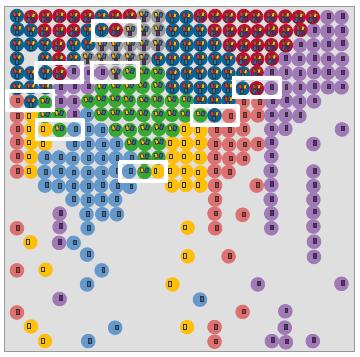New publication from our team in MBio: Bloody coli: a Gene Cocktail in Escherichia coli O104:H4
12/05/2013

Our Research Director, Dr. Raquel Tobes has published an article in the mbio journal about Escherichia coli. In Era7 Bioinformatics we have a lot of experience with E. coli and we did with BG7 one of the first annotation of the E. coli genome from the German outbreak.
In this article Dr. Fernando Baquero and Dr. Raquel Tobes discuss how "as in a crowdsourcing software project, the evolution of O104:H4 starts with an initial plastic bacterium project onto which new elements, including pathogenicity genes, are anonymously contributed by similar bacteria. At the end, we have different combinations of elements that develop and grow continuously within the crowdsourcing community. How to follow that process is the aim of predicting risks for future outbreaks.
Surveilling a reduced number of conserved genes can produce deceiving results, because pathogenicity genes are frequently allocated to mobile modules with little sequence conservation. The availability of next-generation sequencing (NGS) technologies allows us to reveal the complete gene landscape of a bacterium and, moreover, of a community of bacteria. This new perspective on outbreaks circumvents the old bias of looking only at specific conserved genes belonging to the causative agents. NGS enables scientists to trace the importance of gene units that move freely between strains and to analyze the flux of these genes between bacterial communities. In the postgenomics era, NGS technologies are providing public health efforts with advanced and quick tools that allow researchers not only to retrospectively analyze the epidemiological evolution of an outbreak but also to predict its future evolution."
Digital favorites
- Non Gamstop Casinos
- Migliori Casino Non Aams
- Gioco Aviator
- Non Gamstop Casino
- Non Gamstop Casino
- Non Gamstop Casino
- Casino Italiani Non Aams
- Meilleur Casino En Ligne
- Best Online Casinos
- Non Gamstop Casino Sites UK
- Non Gamstop Casino UK
- Best Non Gamstop Casinos
- Gambling Sites Not On Gamstop
- UK Casinos Not On Gamstop
- Non Gamstop Casino Sites UK
- Casino Not On Gamstop
- Non Gamstop Casinos UK
- Casino Online Non Aams
- UK Casino Not On Gamstop
- UK Casinos Not On Gamstop
- Non Gamstop Casino UK
- Best Casinos Online
- Casino Online Non Aams
- Siti Di Slot Online
- Bitcoin Casino
- Casino En Ligne Crypto
- Site Paris Sportif Belgique
- Migliori App Casino
- Casino En Ligne France
- Meilleur Site De Poker En Ligne
- Paris Sportifs Crypto
- Meilleur Site De Paris Sportif International
- オンラインカジノ アプリ おすすめ
- Meilleur Casino En Ligne France
- Casino En Ligne
- Meilleur Casino En Ligne Français
- オンラインカジノサイト
- Best Crypto Casino
- Casino En Ligne Français
- Casino En Ligne Le Plus Payant
 © Era7 Information Technologies SLU 2012 |
© Era7 Information Technologies SLU 2012 |